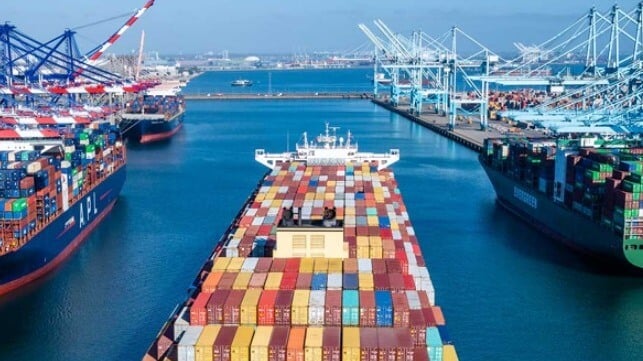Red Sea Problems Drive Schedule Reliability to Lowest Level in 15 Months

Red Sea diversions and the disruptions to carriers’ routes are taking a significant toll on schedule reliability which is now at its lowest level in 15 months. In a new analysis of the market, Sea-Intelligence highlights that both reliability and average delays have recorded significant declines over the past two months wiping away the significant gains achieved starting in 2022 coming out of the Covid-19 pandemic and surge in container volumes.
Amidst the Red Sea crisis, global schedule reliability reviewed for more than 60 carriers and 34 trade routes, marked the second month of greater than a five percentage point decline according to Sea-Intelligence. On average they report it is now at 51.6 percent down 10 percentage points since November 2023 and the start of the crisis. It is down approximately 15 percentage points from the peak at 66.8 percent in mid-2023.
“This drop means that the January 2024 score was the lowest since September 2022,” said Alan Murphy, CEO of Sea-Intelligence. “The difference in schedule reliability between the most and least reliable carrier,” among the top 13 companies, he notes, “was the lowest since February 2023.”
In a surprise, CMA CGM, which was the one major carrier still running some vessels through the Red Sea on a case-by-case basis in January, was the most reliable among the majors at 54.7 percent. CMA CMG’s CEO had complained in an interview with The Financial Times of the problems in its schedules saying even in the Red Sea they were being delayed waiting for naval escorts.
Four other carriers, all Asian-based (COSCO, Evergreen, OOCL, and Wan Hai) were also above 50 percent while the biggest including MSC, Maersk, and Hapag-Lloyd were all in the mid-40 percent range. The difference between CMA CGM as the most reliable and Yang Ming as the least was just 12 percentage points.
“Because of the current Red Sea crisis, and due to significant delays on the round-of-Africa sailings, none of the top-13 carriers were able to record a month-over-month improvement in schedule reliability,” reports Murphy. “Due to the round-of-Africa sailings, the average delay for late vessel arrivals deteriorated further, increasing by 0.59 days month-over-month to 6.01 days,” says Murphy.

that matters most
Get the latest maritime news delivered to your inbox daily.
Some economists have projected that the delays and problems with supply chains would stabilize after a period of time as carriers began to adjust to the longer voyages and the impact evened out on their schedules. The container segment also had excess capacity going into the crisis, which many believe has also helped the carriers to respond to some of the challenges in the short term.
CMA CGM is the only one of the major carriers that said it believed the situation was stabilizing so that it could on a case-by-case basis resume some transits. This however came before today’s incident in which an MSC vessel was again targeted and had a fire due to a missile strike. Other carriers such as Maersk have recently warned customers to expect prolonged disruptions into the second quarter of 2024 or possibly beyond.
